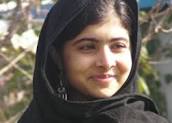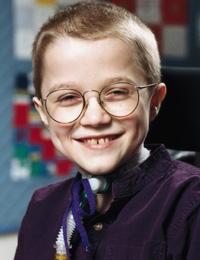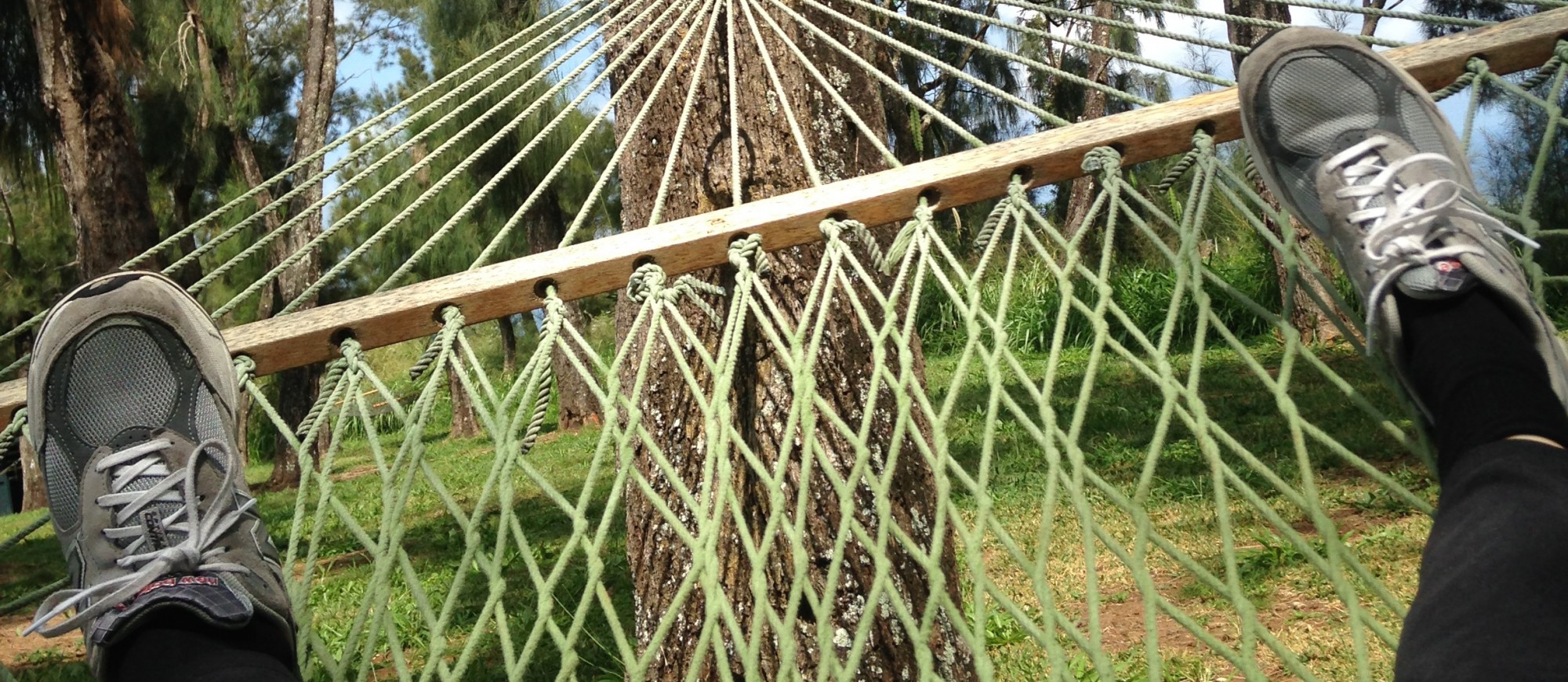Your children are not your children.
are not your children.
They are the sons and the daughters of Life’s longing for itself.
They come through you but they are not from you,
And though they are with you yet they belong not to you.
You may give them your love but not your thoughts
For they have their own thoughts…
You may strive to be like them, but seek not to make them like you.
—Kahlil Gibran, The Prophet
I remember this Kahlil Gibran poster hanging in the waiting room of my pediatrician’s office. Of course it didn’t have the images of Malala Yusafzai*, Mattie Stepanek*, and Xiuhtezcatl Martinez*. That’s my 2015 graphic edition.
I must have been eight, or ten. Old enough to get a glimmer of its deeper-than-obvious meaning, but not old enough to understand. I hadn’t quite “gotten” what it meant to be a human yet, let alone a child. The contradiction of privileges and punishments. The joys and misery of childhood. I knew the words on the poster were significant. I wanted to understand. I didn’t know it would be a lifetime’s work to unravel, to start living its meaning consciously.
In my family, children belonged, a little like property — not property as in slavery, more cared for property, even beloved property. Children had a special property status. To be taken care of, to be seen but not heard, or rather only to be heard when adults wanted to hear you. To be raised.
My father used to put his hand on me and say “Who’s property is this?” I knew what he wanted to hear. “It’s yours Daddy”. I said it every time. I perceived his “owning” of me as my protection in the world. My dad was a budding small capitalist. He was the son of poor, Russian-Jewish immigrants. They had escaped Russian pogroms. He was born and raised in Bronx tenements. During WWII he was stationed in Arizona. Two years after the war and the Holocaust ended, to be actually alive, let alone “making it” in the world, building a business, acquiring a home, well, that must have seemed pretty magical. I can see how he saw children and love through that prism. Besides, it was pretty much how fathers were then. Not all fathers, but many. Anyhow, he meant well. I know he did.
Another tiny, clear memory: When I was thirteen or fourteen, my mother sent me on an errand. Rather than park and go in herself, she wanted to wait in the car while I ran into the deli to pick up some food she’d ordered. When I balked at the assigned errand – who would I talk to? what would I say? —she said, just tell the deli man, Lenny, who you are. Who am I supposed to tell him I am? I asked, unable to hide my embarrassment that I didn’t already know the answer to what seemed like a basic question. She eyed me with consternation, “My daughter, of course” she said. Such a small, strange moment. I never forgot the terrible, lost feeling of not knowing who I was, or who I was supposed to say I was, and how these two not-knowings over-lapped.
Don’t all children belong to their parents? Aren’t children at the very least seen as empty vessels to be filled with their parents ideas, values, religion? Small beings who can sometimes look like a family asset, but more often ask annoying, unanswerable questions, complain, and are exhausting. And sometimes also seen as original sinners, and therefore inherently naughty? Spare the rod, and spoil the child. I think this is a very widespread adult mentality, not just in 1950s America, but around the globe, for ever and still.
The poster in the doctor’s office was saying something entirely different. What if parents belonged to their children, instead of the other way around? What if parents respected the wholeness, the dignity of their children? I loved it. But wouldn’t parents notice the subversive message and demand its removal? Wouldn’t children notice it and demand their human rights? Hardly. Parents didn’t notice, and the truth is a child’s situation is much too precarious, too vulnerable.
Now, one hears that parents are giving too much power to their children. What does this even mean? Abdicating responsibility? It’s hard to be a parent and know how to do it. We all make mistakes. That’s a given.
It is difficult for humans to be in responsible, mutual relationship with each other. We all have unconscious expectations based on our own repressed experiences of childhood, and… who knows what else. We’re constantly interpreting the words and actions of others. We do better interpreting the words/actions of those who are similar to ourselves. Even then it’s not easy, filters being what they are. When there is a power imbalance mis-interpretations magnify, and generally Not in favor of the person who is “one down”. Child vs adult. Poor vs rich. People of color vs white people. Female vs male. LBGQT vs straight etc.
Have you noticed that there is a positive trend in young people these days away from bigotry based on old paradigms of power? That there is a move toward tolerance, acceptance, and even full-out embrace of the other? I don’t know how/why this is happening, but it’s a great thing. I think we would do wise to follow the lead of the children, rather than the other way around.
You may strive to be like them, but seek not to make them like you.
— Kahlil Gibran
Great subversive wisdom on the pediatrician’s office wall.
xo,
Gayle
- Malala Yusafzai, Pakistani activist for education for girls
- Mattie Stepanek (deceased), American poet and peace activist
- Xiuhtezcatl Martinez, Indigenous American climate change activist

Another thought-provoking post, Gayle. Also heart- and memory-stirring. I especially like the question you pose about parents “giving too much power to their children.” I think you mean, what does it mean to be in a power relationship with one’s children? But I know that I as a parent, trying to do things differently from my father who was controlling and thoroughly believed his duty was to control my upbringing, I had a very difficult time not getting into what we called “power struggles” with my son. I think this generation of parents understands, or thinks they do, that children sometimes (often?) need limits set by parents, not because the parents are on a power trip, but because they’re grown up with a grown-up’s perspective and hopefully some wisdom. Or maybe you’re not equating limit-setting with disempowering children.
LikeLike
Hi Anita, Personally I think limit-setting is a good thing, though it will and should be challenged as a child moves into teen years and older. I think inevitably there will be some degree of “power struggle” as you say, as the child gains independence. That seems like a normal process of indivuation and independence-building, which obviously is not always going to go smoothly. Not necessarily anyone’s fault, though perhaps it can go a little more smoothly if the parent, as you said, exhibit’s some wisdom. Personally I don’t equate “grown-up” with wisdom. People can grow old and never attain it. Some young people have it from the start. Go figure. I’m talking about full respect for children as dignified, worthy human beings, full-bore. I’m talking about the power of respect and non-violence (emotional and physical), not the specifics of child-rearing.
Is that more clear? Hope so, but let me know if it isn’t. xo, g
LikeLike
Follow the lead of the children. Words from Heaven.
Love you Gayle. xoxo
LikeLiked by 1 person
Beautiful writing, Gayle. Lovely and potent to experience your storyteller power here!
LikeLiked by 1 person
As usual, very well written. Thought provoking…hmmm.
Raising children… Make that …Bearing children and guiding them.
I think it’s hard to raise children in a way other than the way one was raised in the first place. It’s easy to use methods that seem comfortable, routine. And although one may have bad memories of some of the things one’s parents did while raising one, if one has any amount of self-esteem, success, happiness… then it’s easy to say, “Well, they may have used methods I don’t approve of –but, hey, it worked. I’m happy”, or “I’m successful, or “I have self-esteem.”
I know having children made me seek guidance from a lot of books, but my basic instinct on how to deal with my children came from the way my parents dealt with me. … raised me, if you will. And like me, my parents probably made a lot of mistakes. Unlike me, my parents never seemed to seek advice about how to “raise” me. There were no “how to” books on the shelf. I think I was just blessed that, although they had faults, they were very loving people and loved me very much.
Having, guiding, dare I say raising children into responsible, caring, happy people is a daunting prospect. I see it now with our daughter, her wife and their daughter.
It’s hard…really hard.. To know if you are “doing it the right way”.
That sentence has so many variables: “doing it”…Raising? Guiding? Leading? Teaching?… “the right way”…”right way” …by whose standards.
Then there is that truth that these children that we bear and bring to this earth have their own power and insight. Maybe the best we can hope for is that our “techniques” to “lead” these children into adulthood do not get in the way of their purpose.
Lots of thought provoking here.
Thanks for your post.
LikeLiked by 1 person
Ah yes Sue. I’m quite certain there is no one right way to guide/raise/teach children. Anyway, I’m no expert, and made lots of mistakes myself. What I have in me is the child who was alive 60 years ago, still alive today. I remember feeling whole. Not understanding being treated “less than”, even if that was the norm for how parents and teachers treated children back then. What Gibran’s poem recognizes I believe is what you say in your last paragraph. “…that truth that these children that we bear and bring to this earth have their own power and insight. Maybe the best we can hope for is that our “techniques” to “lead” these children into adulthood do not get in the way of their purpose.”
Recognizing children’s own power and insight, and getting out of the way of their purpose in life — that seems huge and important to me. I believe they can be our teachers just as much, or perhaps even more, than we are theirs. True, we have responsibility for guiding them and keeping them safe in the early years. But, it’s about not making assumptions and presuming because they are small they are not fully human and fully worthy of our respect. I know Mattie’s mother, and Malala’s father honor their children because I have seen both of them in dialogue with their children. The love and respect is palpable. I imagine Xiuhtezcatl ‘s parents also honor him. How else would he develop such a caring heart, articulate mind, and the courage and self-confidence to bring himself fully to the dialogue of the world?
LikeLike